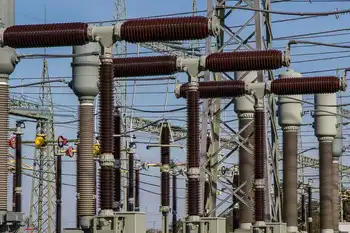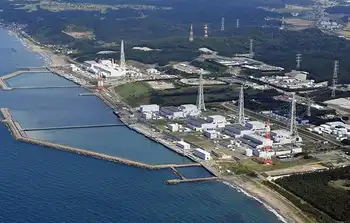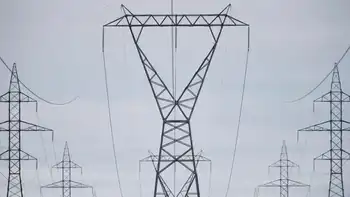Texas takes a shine to solar
AUSTIN, TEXAS - Texas has long been home to Big Oil companies that specialize in extracting petroleum from hard-to-reach places. Now the hip college town of Austin is vying to become the epicenter of a potentially giant market for carbon-free electricity generated by the hot Texas sun.
The rest of Texas may follow, if the state legislature passes incentives that will change the economics of buying panels from hippie cool to low-price hot.
Big U.S. solar companies like SunPower Corp., born in California's Silicon Valley and nurtured on that state's renewable-friendly incentives, are looking to Texas as the new frontier for U.S. solar deployment.
Texas, the second most populous state behind California, is the hub of the U.S. energy sector. Traditional oil companies like Exxon Mobil and ConocoPhillips call it home, but it also claims the mantle as the top U.S. producer of wind power.
"It's a natural combination to think about Texas as being ultimately one of the largest if not the largest, solar market in the country," said Julie Blunden, executive vice president for public policy and corporate communication at SunPower.
Earlier this month, SunPower, California's biggest solar company, committed to opening an Austin office that will house 450 employees. Texas could one day eclipse California to become the biggest U.S. solar generating state, Blunden said.
"Texas is huge," said Michael Horwitz, senior research analyst for clean technology at Robert W. Baird & Co. SunPower has a strong solar marketing record and "it makes sense that they will be one of the first players to break into that market," Horwitz said.
Texas has plenty to offer. It's home to the biggest U.S. electricity market, and as anyone who has visited the state during the summer knows, there is plenty of sun.
Texas "has virtually unlimited solar energy supply" and ranks first among U.S. states in solar resource potential, according to the U.S. Energy Department.
That potential is mostly untapped today. California is the No. 1 U.S. solar producer, thanks in large part to over $2 billion in incentives and laws that require utilities to get 33 percent of their electricity from renewable sources by 2020, says Aaron Chew, an analyst at Hapoalim Securities.
Texas doesn't even make the Top 10.
That could change if the Texas legislature acts next year on proposals that would require state utilities to buy solar generation and offer $500 million in rebates over five years to residences and businesses to install solar panels.
"These incentives will light the fire under it, touch the match and light the fuse," said Russel Smith, executive director of the Texas Renewable Energy Industries Association in Austin. "It's going to be like the Texas wind sector if you do it right."
Texas solar deployment has been a piecemeal, city-by-city effort so far. Austin has set a target of 35 percent renewable energy by 2020, and Austin Energy wants to see the solar target doubled to 200 megawatts over the period. San Antonio has set similar goals.
Without state-wide rules, Texas solar proponents say, the industry could languish in a patchwork of local efforts.
"For the private sector to get off the dime and really do what private capital can do, which is to take the lid off this thing, the legislature will need to do something," said Andrew McCalla, president and founder of Meridian Solar Inc., which designs, builds and installs solar installations.
Even without such incentives the Texas solar market is showing signs of life. The state's first solar farm began operations in November, a 14-megawatt project in San Antonio. That would power about 14,000 homes if the sun was shining full strength all the time — or about 5,000 in normal conditions.
And on December 15, RRE Austin Solar broke ground on a 60-megawatt solar farm northeast of Austin. A streamlined permitting process was key to drawing RRE Austin to Texas, said Angelos Angelou, a consultant for the privately held company.
"From a timing point of view Texas offers significant advantages over any other state," Angelou said. While obtaining key permits in California takes years, the Texas grid operator approved a connection permit in about seven months, he said.
Texas solar projects are dwarfed by large-scale California solar farms like the planned $6 billion, 1,000-megawatt Blythe solar project in the Mojave Desert, which could power roughly 300,000 homes at peak when it comes online in 2013.
Texas Gov. Rick Perry has vociferously opposed federal regulations to curb carbon dioxide. But if the U.S. Congress ever acts on long-delayed carbon legislation, solar projects could be key for Texas, which emits more heat-trapping gases per capita than any other state.
If Texas has a solar boom, Austin would be a logical host. It's known as the "Silicon Hills" — a nod to California's Silicon Valley — due to its high-tech roots.
PC maker Dell Inc.'s headquarters is in nearby Round Rock, and the University of Texas at Austin's faculty is a hotbed for high-tech experts.
The city has a long history of clean energy activism, which has its roots in community opposition to Texas nuclear plant construction in the 1960s.
"Austin is this unique mecca for clean energy scientists, combined with a 1960s-type pro-environment, hippie culture," said Jose Beceiro, Director of Clean Energy at the Greater Austin Chamber of Commerce, who has helped draw solar business to Austin.
Business travel between the Silicon Hills and the Silicon Valley is popular enough to support several daily direct airline connections between Austin and San Jose, which passengers refer to as "the Nerd Bird."
Such flights have "an unusually cool cast of characters," SunPower's Blunden said. "You're just as likely to see someone carrying a guitar case as you are two computer cases."
Related News

Ukraine Resumes Electricity Exports
KYIV - Ukraine began resuming electricity exports to European countries on Tuesday, its energy minister said, a dramatic turnaround from six months ago when fierce Russian bombardment of power stations plunged much of the country into darkness in a bid to demoralize the population.
The announcement by Energy Minister Herman Halushchenko that Ukraine was not only meeting domestic consumption demands but also ready to restart exports to its neighbors was a clear message that Moscow’s attempt to weaken Ukraine by targeting its infrastructure did not work.
Ukraine’s domestic energy demand is “100%” supplied, he told The Associated Press in an interview, and…




